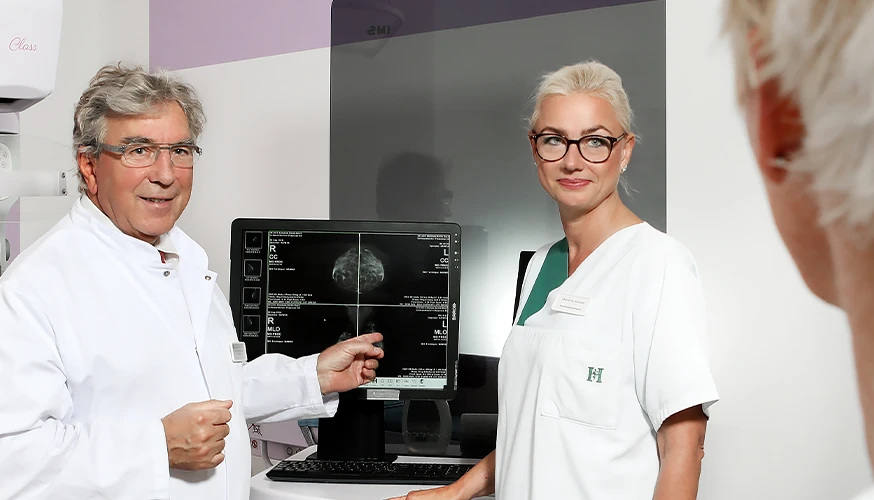Breakthrough success in breast cancer treatment
Fresenius is committed to researching and developing new therapeutic approaches. One current area of research is a worldwide long-term study on antibody drug conjugates (ADCs) in breast cancer treatment. We find out about the promising results and the potential of this new therapy in an interview with Professor Michael Untch, Chief Physician and Head of the Breast Cancer Centers in Berlin-Buch.
Professor Untch, around 1,500 women worldwide have taken part in the breast cancer study launched ten years ago and you treated some of them in Berlin-Buch. What are the most important findings?
Prof. Untch: The results are extremely promising. 90 percent of the women who received an antibody-drug conjugate are still alive after ten years, with no relapses or metastases. This is especially remarkable since these women suffered from a particularly aggressive type of breast cancer.
So, the treatment has helped patients who previously had an increased risk of relapse?
Prof. Untch: In fact, many of the women still had active tumor tissue in their breast or in the lymph nodes after conventional chemotherapy, antibody therapy, and subsequent surgery. The breast cancer is no longer detectable in nine out of ten patients who received the ADC drug additionally for a year. This is a real revolution and gives many patients new hope.

How do the ADC drugs work?
Prof. Untch: Contrary to the effect of other drugs, the ADC drug used in our study has a targeted effect on the cancer cells. The special drug consists of three components: an antibody that recognizes the cancer cells, a drug that destroys the cancer cells and a linker that connects the two components. The active substance is only released once the drug has reached the cancer cells guided by the antibody. This means that the therapy does not exert such a burden on the body as a whole.
Does the ADC drug effectively find the right cells automatically?
Prof. Untch: That’s correct. The antibody recognizes special features on the surface of the cancer cells and guides the drug directly there. This allows very strong drugs to be used without damaging healthy cells.
What do you see as the next big milestone in cancer therapy?
Prof. Untch: We are currently experiencing a competitive race between two therapeutic approaches. The competing therapies are ADC drugs associated with potentially less frequent use of classic chemotherapy and special vaccinations against cancer. Although the eventual outcome is still uncertain, the early detection of breast cancer is constantly improving and therapies are being continuously developed. As a result, we can offer the prospect of a cure to an increasing number of patients.
You can find more detailed information on the website of Helios (German language only).

